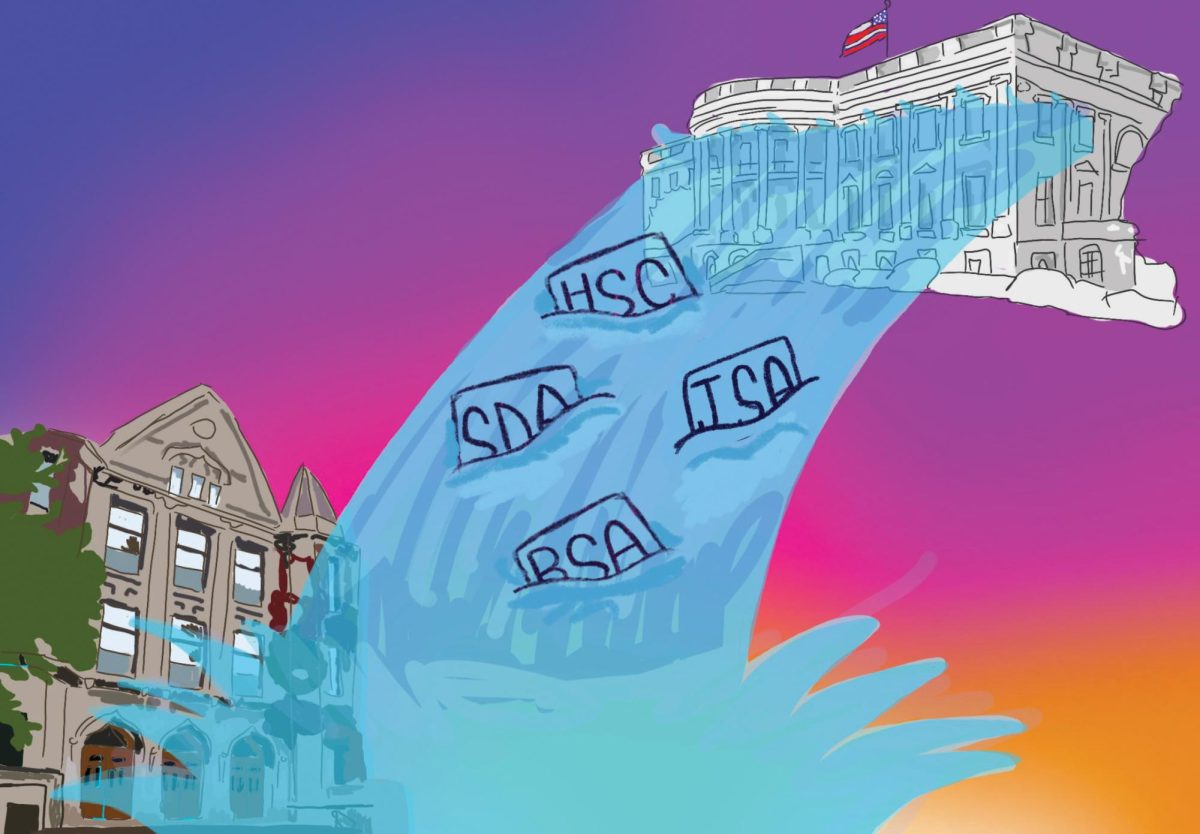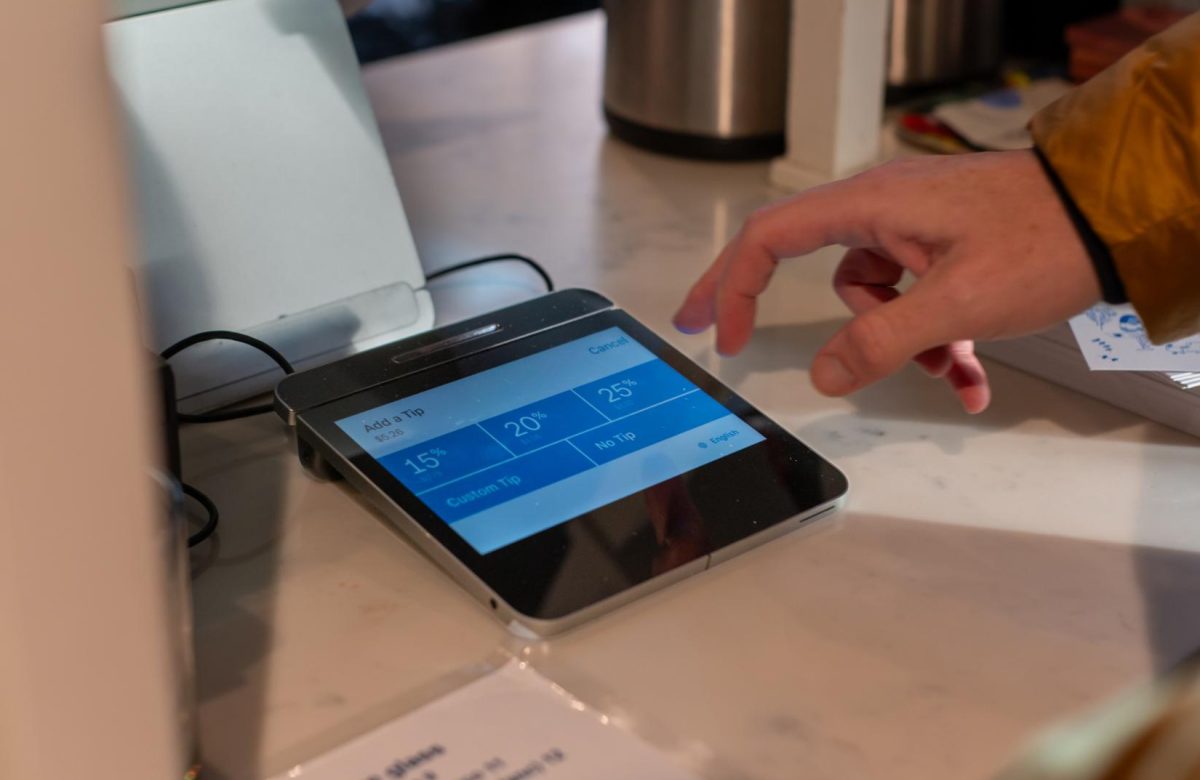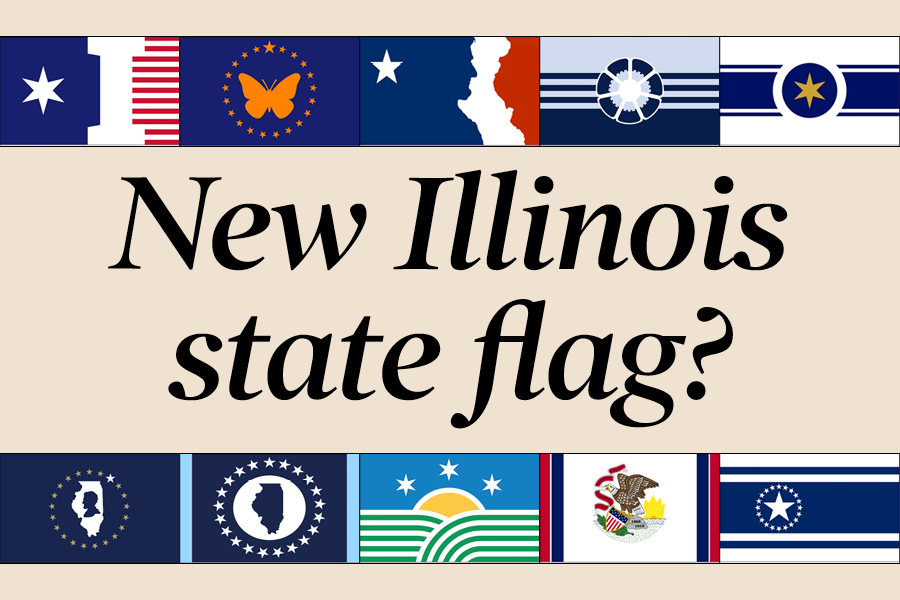15%. 18%. 20%. How much to tip? From luxury meals to quick stops at Starbucks, gratitude provides a natural end to dining experiences. We ask ourselves how good the service was. Did the employee have a friendly attitude? Most of us quickly move on with our days after leaving some change in a jar, or tapping a button on a keypad.
A change in the law about how tipped workers in Chicago are paid is expected to improve the standard of living for such workers all over the city, though opponents say it may raise costs for restaurants. U-High students who work at restaurants see firsthand how important compensation can be for tipped workers.
On Oct. 6, the Chicago City Council voted to phase out a practice that allowed establishments to pay service workers less than the minimum wage, under the assumption that those workers would receive tips that would boost their earnings. Such workers could be paid as little as $9.48 an hour, far less than the $15.80 minimum wage required for most other workers.
Prior to the change in October, if employees were unable to make up the remainder in tips, employers were mandated to cover the gap. Beginning in July 2024, the wage for tipped employees will increase each year until 2028 when it will be the same as the regular minimum wage. This change impacts an estimated 100,000 workers across the city.
Senior Santana Romero, a hostess at a Chili’s restaurant on 95th Street, has noticed that her tipped colleagues receive ill treatment while waiting tables.
“The servers at my work deal with so much,” said Santana, who as a hostess receives a standard wage without tips. “Whether it’s someone just being really obnoxious or someone actually being really aggressive, the idea that that interaction determines whether they’re going to make $15 or $6 that day from their minimum wage is crazy.”
Chicago Mayor Brandon Johnson said that the new ordinance will aim to address staffing issues in the restaurant industry and promote youth employment.
“This legislation is the culmination of years of advocacy,” Mr. Johnson said at an Oct. 6 press conference. “The ordinance embodies Chicago’s values of uplifting working people and addressing systemic inequities in the restaurant and hospitality industry.”
While advocacy organization One Fair Wage believes higher wages will retain the workforce, the Illinois Restaurant Association argues that the ordinance will harm restaurants as a result of higher costs. The restaurant industry group asserts that under the current system, the median hourly wage for a tipped restaurant worker is $28.48.
Senior Poppy Beiser has worked as a barista at Medici On 57th for two years. She is guaranteed an hourly wage between $16-17, excluding tips. Both electronic and cash tips are gathered at the end of each shift and distributed evenly among all employees.
At Medici, most customers are friendly to baristas and choose to tip, Poppy said. She observes that even though customers aren’t required to tip, many feel obligated to, especially when they pay with a card.
One takeaway Poppy has from working a minimum wage job is the importance of customers understanding the hard work of those who assist them in restaurants. The hours are long. Patience is a necessity.
“I think some people forget that we’re humans too,” Poppy said. “They kind of just treat us like we’re there to serve them, and they forget this.”





















































